NAVIGATING HIGH RISK CLINICAL RESEARCH PARTICIPATION: INFORMED CONSENT, ETHICAL ENGAGEMENT, AND PATIENT EMPOWERMENT
HOME
BLOG
NAVIGATING HIGH RISK CLINICAL RESEARCH PARTICIPATION: INFORMED CONSENT, ETHICAL ENGAGEMENT, AND PATIENT EMPOWERMENT
Clinical research plays a critical role in medical advancements, offering new treatments and therapies for a range of conditions. However, high-risk clinical studies present unique challenges, particularly for participants who must weigh the benefits against potential dangers. Understanding informed consent, ethical considerations, and patient empowerment is crucial to navigating these studies safely and confidently.
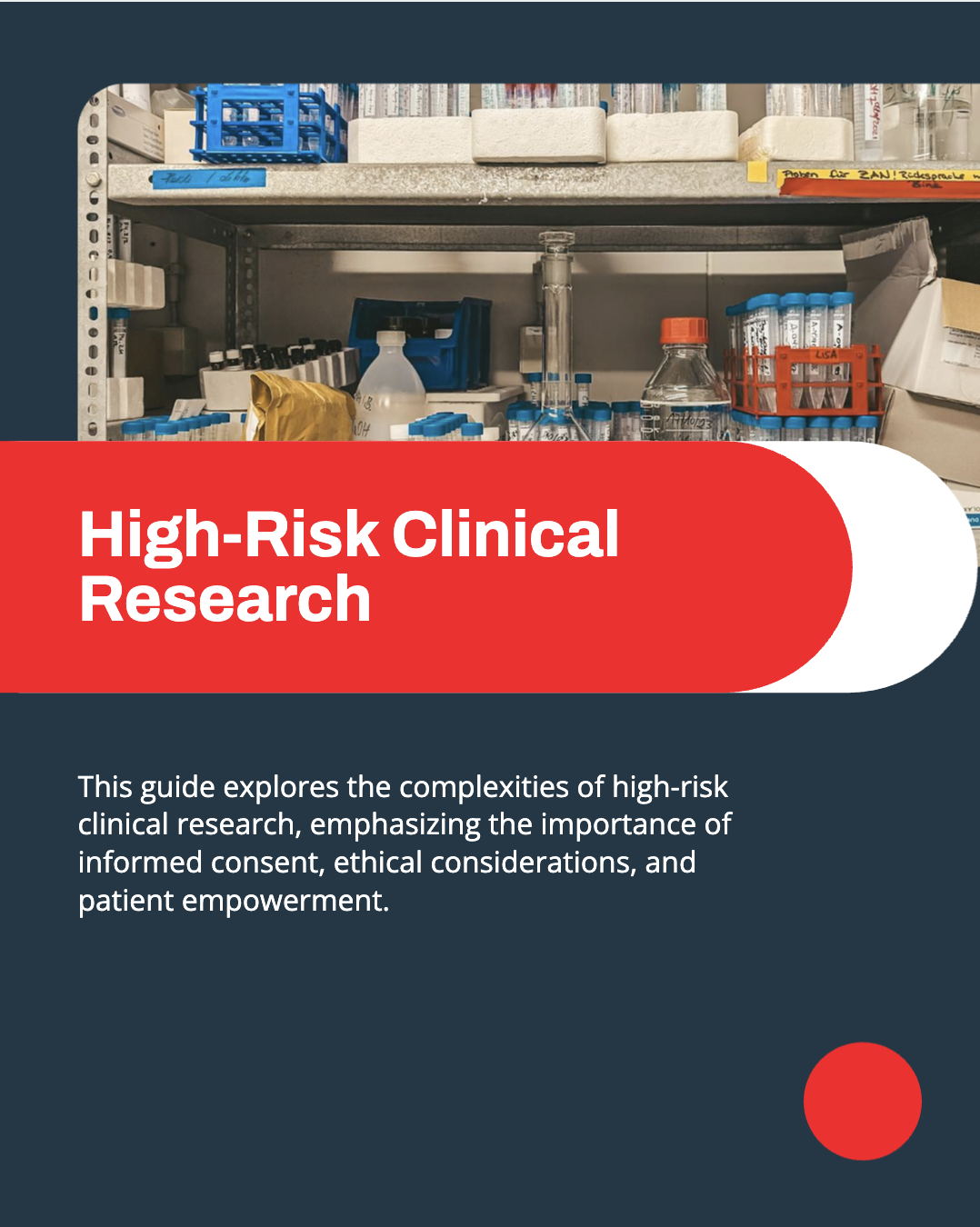
Understanding High-Risk Clinical Research
What is High-Risk Clinical Research?
High-risk clinical research involves studies where participants face significant potential harm, including severe side effects, unknown risks, or invasive procedures. These studies often focus on experimental treatments for life-threatening diseases like cancer, rare genetic disorders, or infectious diseases with limited treatment options.
Why is High-Risk Research Important?
Despite the risks, these studies are essential for medical progress. They help researchers:
- Develop groundbreaking therapies for previously untreatable diseases.
- Improve patient survival rates and quality of life.
- Advance personalized medicine through genetic and biomarker studies.
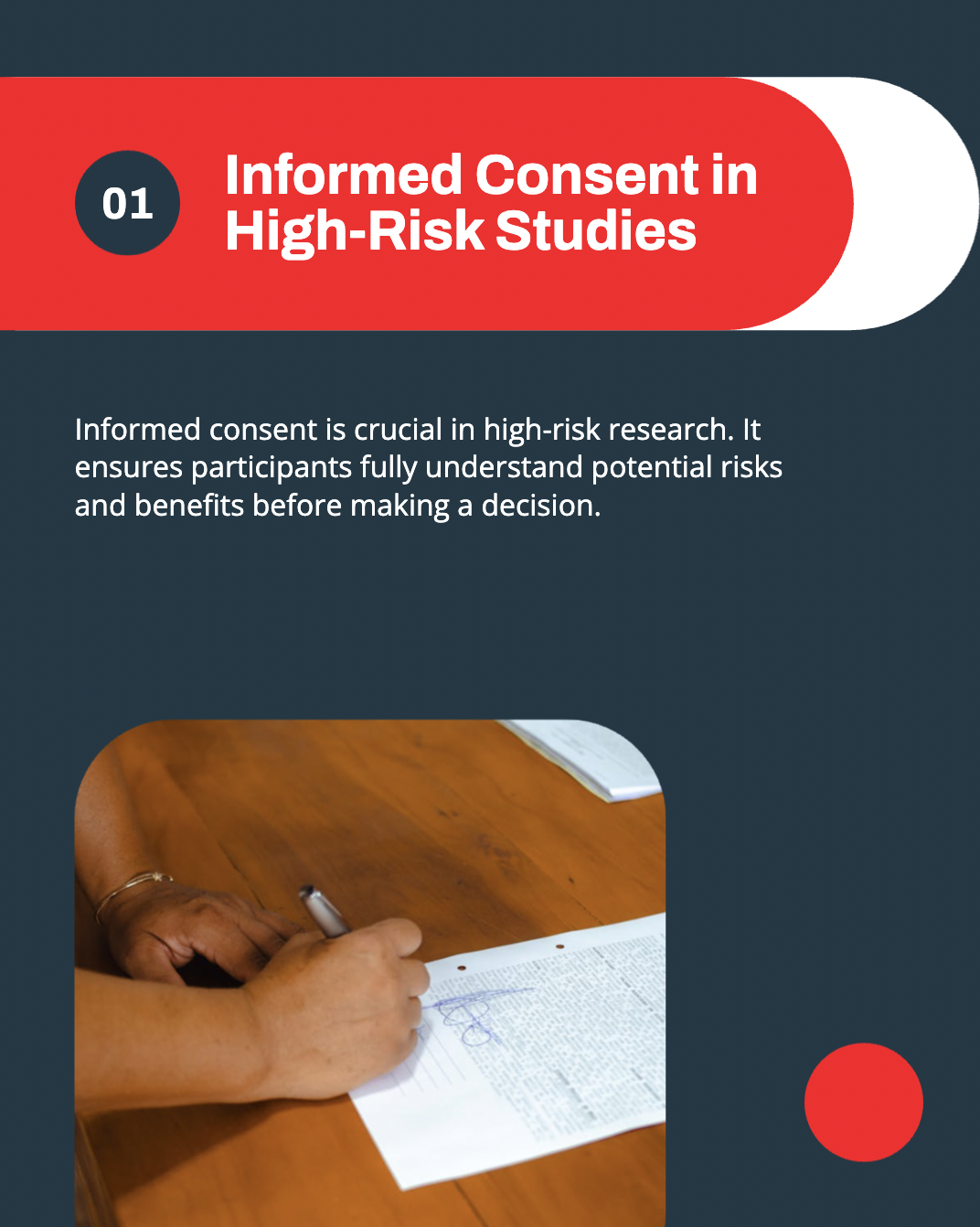
The Role of Informed Consent in High-Risk Studies
What is Informed Consent?
Informed consent is a legal and ethical requirement in clinical research, ensuring participants understand the potential risks and benefits before agreeing to join a study. It is not just about signing a form—it is a continuous process of communication between researchers and participants.
Key Elements of Informed Consent
- Disclosure – Participants receive comprehensive information about the study, including its purpose, procedures, risks, and potential benefits.
- Comprehension – Researchers must ensure participants fully understand the study details, often through simplified explanations and Q&A sessions.
- Voluntariness – Participation must be completely voluntary, without pressure or coercion from researchers, family, or medical professionals.
- Ongoing Communication – Participants should be informed about new developments and be allowed to withdraw at any time.
Challenges in Informed Consent
- Complex Medical Terminology: Many patients struggle to understand the technical jargon used in consent forms.
- Emotional Vulnerability: Patients facing severe illnesses may feel pressured to join a study, fearing it’s their only option.
- Limited Decision-Making Time: Some studies require quick enrollment, reducing the time available for careful consideration.
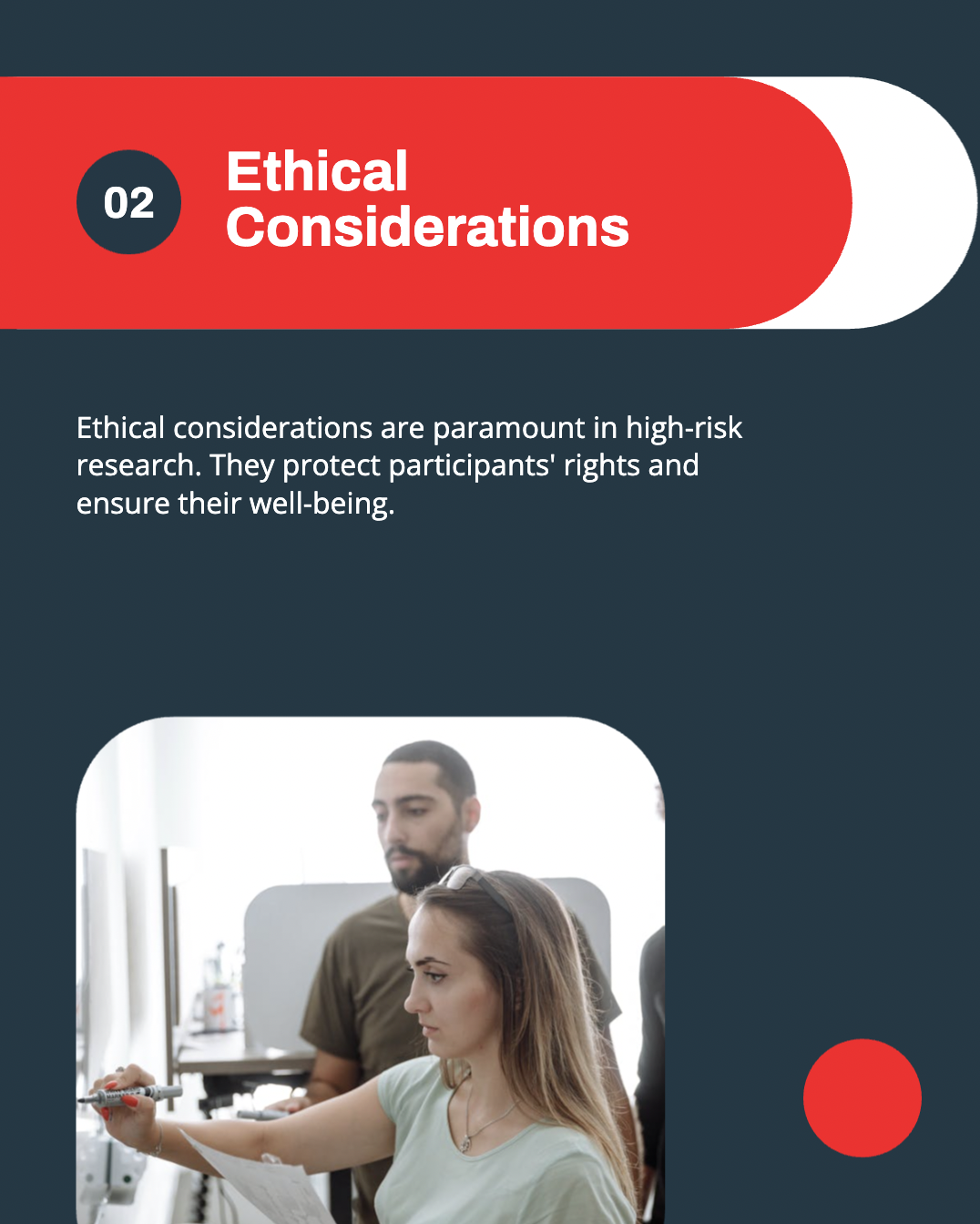
Ethical Considerations in High-Risk Clinical Research
Protecting Participant Rights
Ethical research prioritizes patient safety, dignity, and autonomy. Ethical safeguards include:
- Independent Ethics Committees (IECs) & Institutional Review Boards (IRBs): These organizations review research protocols to ensure ethical compliance.
- Risk-Benefit Analysis: Researchers must demonstrate that the potential benefits outweigh the risks before launching a study.
- Confidentiality and Data Protection: Patient information should be kept secure and used only for the intended research purposes.
Addressing Vulnerable Populations
Certain groups, such as children, the elderly, and individuals with cognitive impairments, require additional protections. Ethical safeguards include:
- Legally Authorized Representatives (LARs): A designated individual may provide consent on behalf of a participant.
- Special Assent Process for Minors: Children old enough to understand should be given a simplified explanation and allowed to express their willingness to participate.
Compensation and Medical Care
- Participants should be compensated for time and expenses, but without coercive incentives.
- Access to medical care for study-related injuries should be guaranteed.
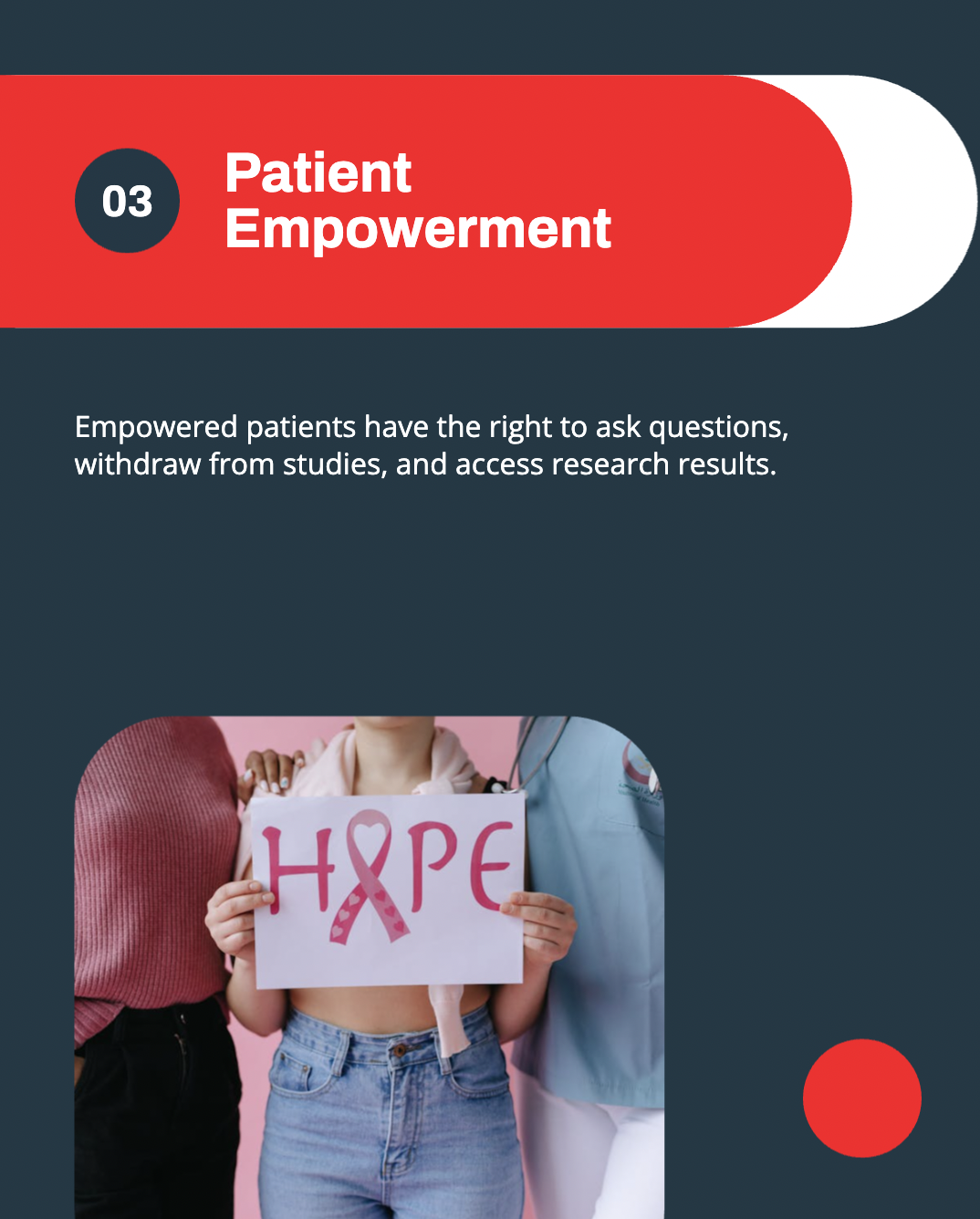
Empowering Patients in Clinical Research
Understanding Patient Rights
Participants have the right to:
- Ask Questions and receive clear answers.
- Withdraw at Any Time without facing medical or legal consequences.
- Access Study Results (when applicable) to understand the impact of their participation.
Tools for Making an Informed Decision
- Decision Aids – Videos, infographics, and digital tools can simplify complex study details.
- Patient Advocates – Healthcare professionals or independent groups that help patients understand their options.
- Support Networks – Connecting with other patients in similar studies can provide emotional and practical guidance.
The Role of Technology in Patient Empowerment
- Electronic Consent (eConsent): Digital tools help streamline the informed consent process with interactive elements.
- Wearable Devices: Some studies use wearables to monitor participants remotely, reducing the need for frequent hospital visits.
- AI & Big Data: Advanced analytics can predict potential side effects and personalize treatments based on patient data.
Ethical Engagement Between Researchers and Participants
Building Trust in Clinical Studies
- Transparency: Open communication about risks and potential benefits enhances trust.
- Cultural Sensitivity: Researchers should respect diverse beliefs and backgrounds.
- Post-Study Access: Providing continued treatment access for participants in successful studies promotes ethical responsibility.
Community Involvement in Research Design
Engaging patient advocacy groups and local communities ensures studies address real patient needs and improve diversity in clinical research.
Navigating the Decision-Making Process
Steps to Take Before Joining a Study
- Gather Information: Research the study, its sponsors, and previous study phases.
- Consult Medical Professionals: Discuss the study with doctors to assess its risks and benefits.
- Consider Alternative Treatments: Compare the study’s potential benefits to standard medical care.
- Discuss with Family & Support Networks: Ensure personal and emotional support is in place.
Key Questions to Ask Researchers
- What are the known risks and potential benefits?
- How does this study compare to existing treatments?
- What happens if I choose to withdraw?
- Will I have access to post-study care?
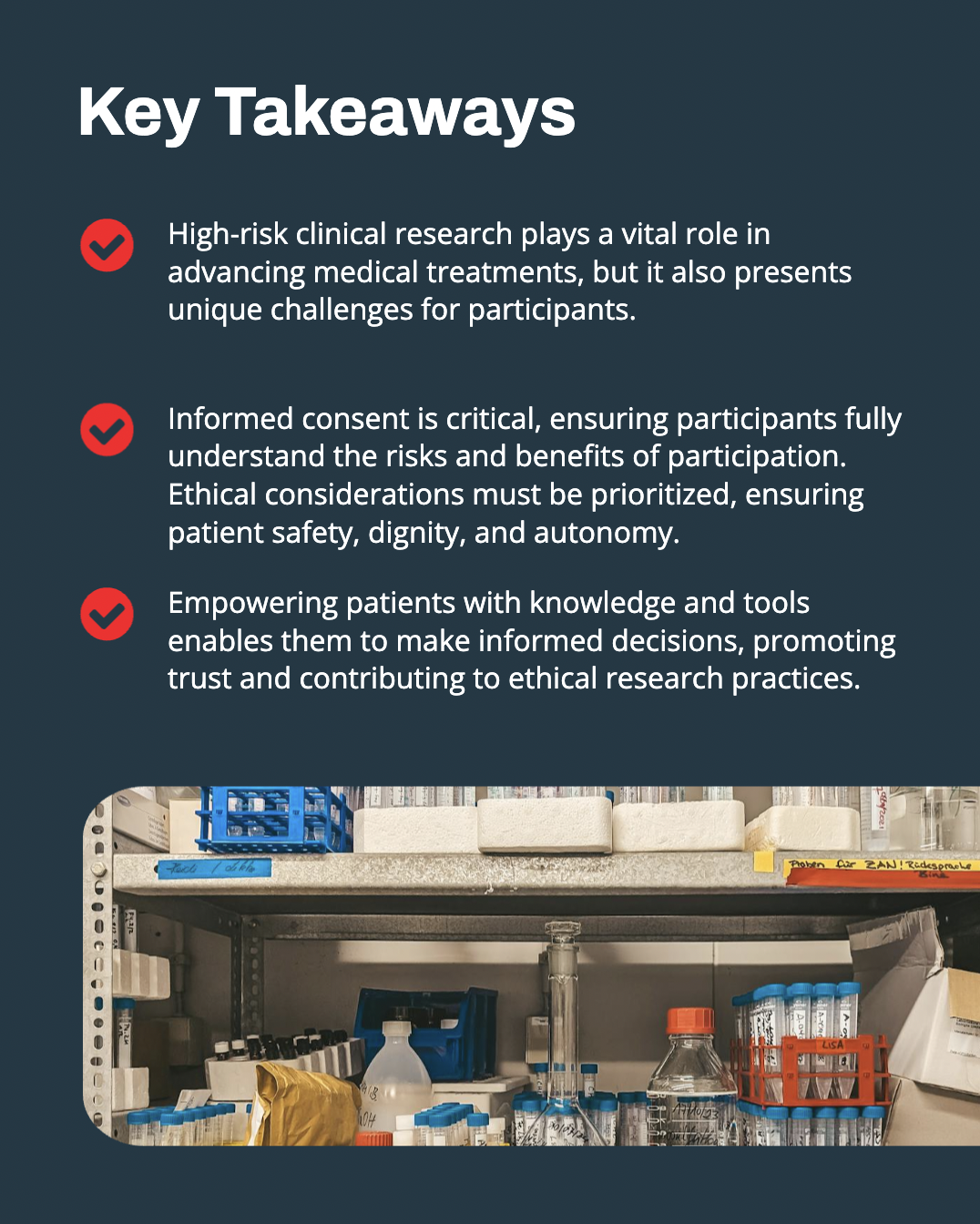
Key Takeaways
High-risk clinical research is a complex but necessary aspect of medical advancement. By understanding informed consent, ethical safeguards, and patient empowerment, participants can make confident decisions that align with their health goals. Ethical engagement between researchers and patients fosters trust, improving both study success and patient well-being.
FAQs
- How do I know if a clinical study is safe?
All clinical studies undergo rigorous review by regulatory agencies and ethics committees before approval. Reviewing the study’s risk-benefit assessment can provide insight into its safety.
- Can I withdraw from a clinical study at any time?
Yes, participants have the right to withdraw at any stage without penalty or loss of medical care.
- What happens if I experience severe side effects?
Researchers must provide medical monitoring and care. Some studies also cover medical expenses related to study-related injuries.
- Do clinical studies offer guaranteed treatment benefits?
No. While studies aim to develop new treatments, there is no guarantee that participants will benefit from the experimental intervention.
- Are clinical studies only for patients with no other treatment options?
No. While some studies focus on last-resort treatments, others explore new therapies for patients with multiple treatment choices.
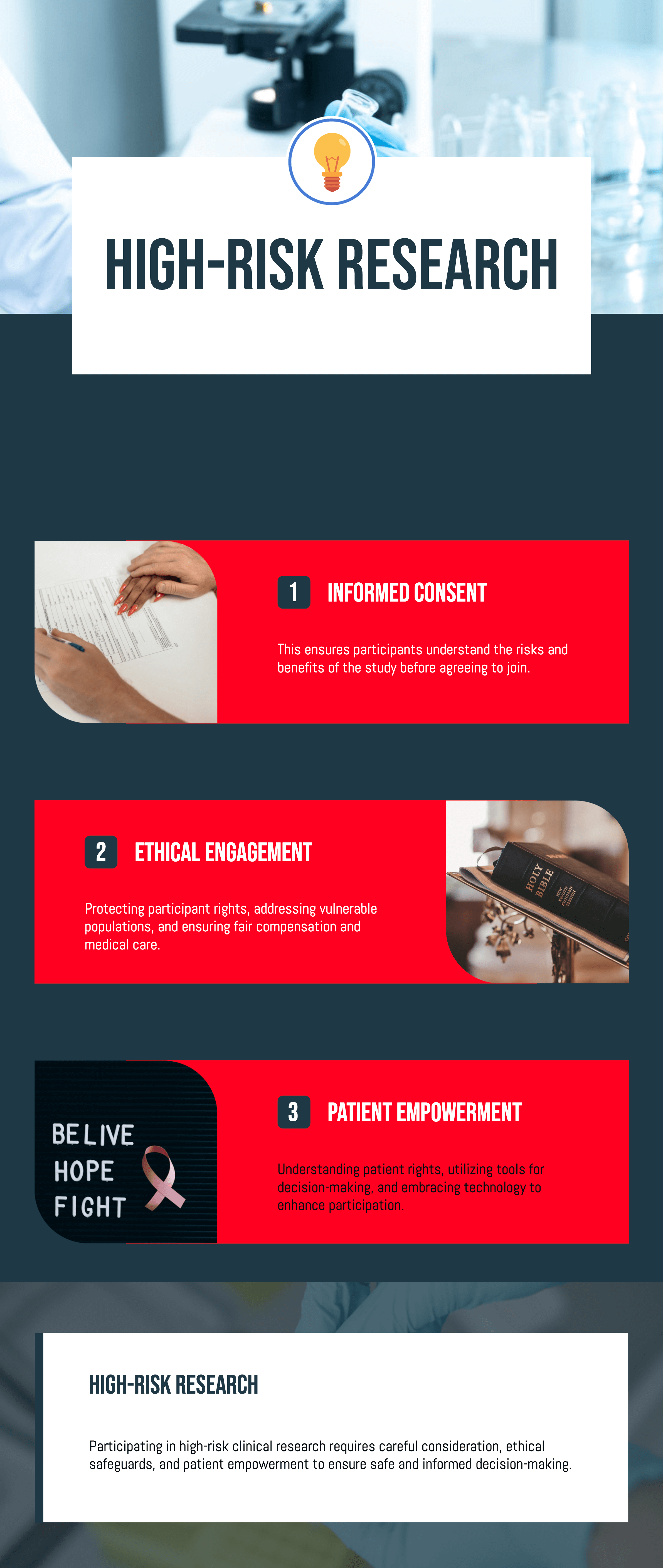 20.02.2025
20.02.2025





 20.02.2025
20.02.2025